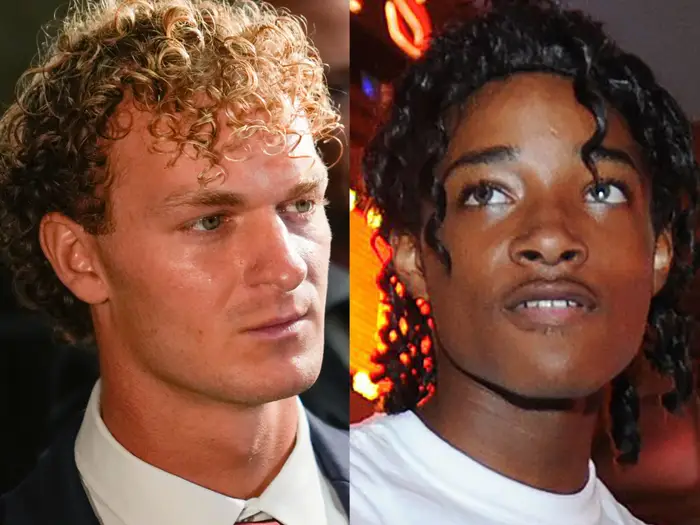Prosecutors Ask for Caution When Allowing Witnesses To Use the Word ‘Hero’ in Daniel Penny Manslaughter Trial
They argue the word would be too prejudicial to the jury, which is in the process of being selected.

Prosecutors in Daniel Penny’s trial on Tuesday asked the judge to prevent words like “hero” and “Samaritan” from being elicited from witnesses because they may draw sympathy for the Marine veteran who put a homeless street performer in a fatal chokehold on a New York subway last year.
The judge presiding in the case, Maxwell Wiley, did not grant the request prosecutors asked for in hopes of not leading the jury to acquit Mr. Penny on manslaughter charges in the death of Jordan Neel. Judge Wiley instead resumed the time-consuming process of finding 12 impartial jurors.
On Monday, Elon Musk threw his support behind Mr. Penny, sharing a post on X, which he owns, of a woman holding a sign lamenting that no “young, fit guys” came to rescue a woman who was being harassed on the subway.
“This man on the subway was repeatedly harassing a woman, being disgusting, invading her space, etc,” the woman had complained. “Tell me why me and the other women around tried to intervene and tell him off but all the young, fit guys around just stood silent and looked at the ground.”
Another X user commented, the reason why no man stepped in was because men “know what happens when they do,” and then the commentator shared a photo of Mr. Penny outside the Manhattan criminal courthouse. Elon Musk added, “This is why.”
As Mr. Penny, 26, entered the courthouse at Lower Manhattan on Tuesday morning, protesters who had gathered outside, called him a “murderer.” The group of protesters was smaller than it had been Monday, the day the trial began. There were about a dozen activists, one holding a sign that read “Rest in Power Jordan Neely.”
Neely, who was 30 years old and a well-known Michael Jackson impersonator, boarded an F train at the Second Avenue stop at Manhattan on May 1, 2023. According to witnesses, he yelled and threatened passengers.
Neely tossed his jacket to the ground, yelling that he was hungry and thirsty, and “ready to die.” Mr. Penny allegedly approached Neely from behind and placed him in a chokehold on the subway floor. Two other passengers helped Mr. Penny restrain Neely.
The street performer was pronounced dead at the hospital. A medical examiner ruled his death a homicide two days later. In medical terminology, this means that the death was caused by the actions of another person — not that the death was a criminal murder. That determination is for the jury to make.
The Manhattan district attorney’s office alleges that Mr. Penny held the chokehold for more six minutes, “well past the point at which Neely had stopped purposeful movement.” To convict him of the manslaughter and negligent homicide charges, the prosecution does not have to prove that Mr. Penny intended to kill Neely but that he acted recklessly.
The defense argues that Mr. Penny was trying to defend himself and his fellow passengers from an unpredictable and aggressive stranger on the subway. The case has divided the public.
Some activists say Neely did not physically attack anyone and that Mr. Penny used excessive force. Meanwhile, Mr. Penny’s supporters call him a good Samaritan and a hero.
Judge Wiley is now looking for the jurors who will decide Mr. Penny’s case. He is first pre-screening Manhattan residents to weed out those with scheduling conflicts, before he will begin on Friday the the process during which prospective jurors are questioned, known as voir dire, to determine their suitability to hear the case.
By Tuesday afternoon, the judge had more than 80 prospective jurors able to return on Friday. He dismissed more than 90 people on Tuesday.
The trial is expected to last six weeks. The jury pre-screening process will continue on Wednesday morning.

